Humanities NY Graduate Projects
Through its Humanities Centers Initiative, Humanities New York (HNY) supports publicly engaged work by graduate student awardees from partnering institutions statewide. Each summer, two selected graduate student applicants from Syracuse University receive funding and other supports toward their work in the public sphere.
Visit our Forms and Funding page for the latest information on how and when to apply.
Graduate Student Awardees

Mary Hanrahan (Graduate Student, Communication and Rhetorical Studies)
Project: Countering War on Terror Narratives w/ Muslim Community Art
Working with the Lender Center for Social Justice at Syracuse University, Hanrahan’s project examines the impact of post-9/11 American media coverage on Muslim communities. The team plans to curate a community-sourced art exhibit showcasing emergent counter-narratives from impacted communities. It solicits works by New York based artists to construct an exhibit that centers the voices of those silenced and misrepresented by the post-9/11 ideological climate—an opportunity for these communities to reclaim their narrative agency.

Mercy (Esi) Oppong (Food Studies M.S. ’24)
Project: Food Sovereignty in Migration: The New American Kitchen
Oppong’s project explores the food sovereignty issues of New Americans, allows for the compilation of a meaningful cultural resource, creates opportunities for cross-cultural exchanges, and fosters environments for community collaborations to flourish. The development of a recipe book allows a route by which interested farmers can share a meaningful piece of their history and food traditions with audiences in CNY and beyond. This work focuses on agricultural practices, culturally significant produce, recipes, and stories of New Americans, made simpler and more publicly accessible. Oppong is working with the Syracuse Refugee Agricultural Program (SyRAP) at Refugee and Immigrant Self-Empowerment (RISE).
Read Esi's short story in Rooted in Agroecology and Food Sovereignty.
Prior Public Humanities Graduate Student Awardees
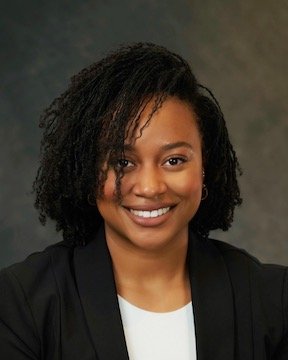
Chelsea Bouldin (Ph.D. Student, Cultural Foundations of Education)
Project: So be it; See to it: An Archiving Project
About Chelsea: Bouldin is pursuing a Certificate of Advanced Study in Women’s and Gender Studies. She is also the recipient of an Imagining America (IA) Publicly Active Graduate Education (PAGE) fellowship for the 2023-24 academic year. With the goal of democratizing archival knowledge housed in relatively inaccessible, elitist institutions, her work with the Black Women’s Cartography Collective (BWCC)– a community-based project in Syracuse, N.Y. – uses archival work and speculative fiction literature to map our current selves, spaces, histories, and futures. By engaging the Octavia Butler archives at the Huntington Library, and developing the BWCC to engage with this research, this project bridges histories, selves, and communities. This of particular importance to Black women whose histories have been disproportionately subject to mainstream erasure, and who have had limited “windows and mirrors” to see themselves through literature.
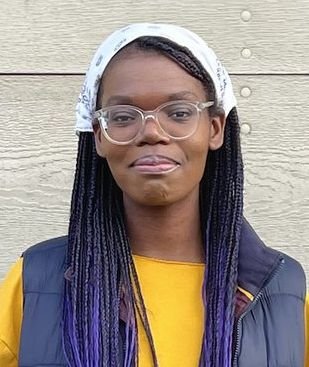
Caroline Imani Charles (Ph.D. Student, English / Film and Screen Studies)
Project: "Family Pictures Syracuse" | Turning the Lens Collective
About Caroline: Charles is primarily interested in African-American film history, Black visuality studies, and archives. Her research questions how visuality participates in our understanding of race, and it seeks to discover how Black archival engagements and practices disrupt dominant ways of seeing. Caroline has been a teaching assistant for the courses World Cinema, Interpretation of New Media, Interpretation of Film, Hip Hop and Race, and was an African-American Studies External Fellow in 2019-2020. She earned her B.A. in English at Williams College.
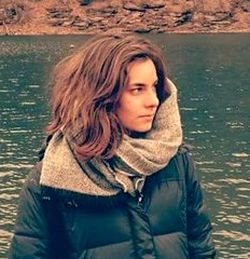
Lauren Cooper, Ph.D. Student, English
Project: Ecologies of Writing
Cooper's youth-focused public writing project is designed to generate humanities-based responses to environment, nature, and place. Drawing from diverse backgrounds and individual experiences, local students from the North Side Learning Center, La Casita, and the YWCA’s Girls Inc. participate in writing workshops coordinated with a speaker series featured within the Syracuse University Humanities Center's “REPAIR” symposium (2022-23). In light of climate change, models of collective interpretation and expression are vital to understand our relationship to the environment. This project encourages students to express their environmental experiences and understandings through deep reading, creative writing, and scientific inquiry.
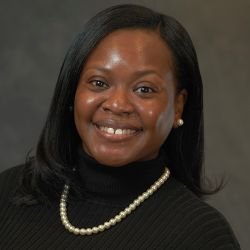
Jessica Elliott, Ph.D. Student, History
Project: A Children's Story: School Desegregation in Syracuse, NY 1960-1970
Brown V. The Board of Education (1954) as a turning point in the modern Civil Rights Movement has been used by many to create and uphold a narrative of Southern exceptionalism regarding racist Jim Crow policies and practices. Elliott's project seeks to upend that narrative by illuminating the voices of the children who lived through the experiences of school desegregation in Syracuse, New York from 1960-1970. Seniors in age now, there are a wealth of African American people who were students at Washington Irving Elementary, Madison Junior High School, and Central Tech High School and want to make contributions to the discipline of History: this project will be their gift to the future.
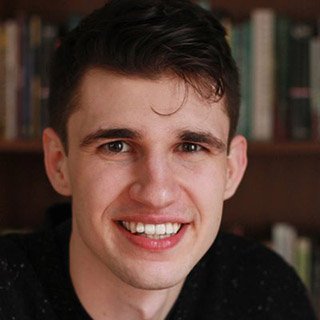
Jacob Gedetsis, MFA, English / Creative Writing
Project: First Taste: A Community Narrative Around Food
First Taste is a youth-focused public writing project designed to generate intergenerational community narratives centered on New American foodways. Local refugee students at The North Side Learning Center -- engaging in both classroom-based workshops and site visits to local farms, museums, grocers, and restaurants -- create community histories through an interrogation of food using various modes of humanistic and artistic expression. This program combines history, art and writing workshops, culminating in a public reading and display of student works at the Salt City Market in downtown Syracuse.
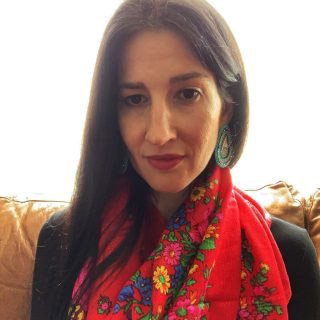
Meaghan (Ionah) Scully, Ph.D. Candidate, Cultural Foundations of Education
Project: Land as Relative, Land as Teacher: Indigenous-Centered Community Dialogues for Racial and Gender Justice
Scully’s project employs stories and histories of land pedagogy, land relationality, and trickster consciousness in the Wesakecahk teachings of the Cree nation to serve as mechanisms for discussion across difference between Indigenous and other communities of color. Wesakecahk teachings offer interventions into the discomforts of navigating power differentials in coalition work, open up ways for thinking about gender differently, and compel action plans to address decolonial racial and gender justice issues. This dialogue builds from higher education curriculum, currently in development in collaboration with the Director of Syracuse University’s Intergroup Dialogue program, to then share in community-based settings.
UPDATE (2023): Doctoral Candidate Ionah Scully Named an NAEd/Spencer Dissertation Fellow
Prior Public Humanities Graduate Student Fellows
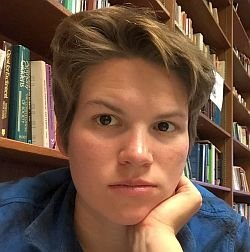
Dana Olesch Ph.D. Candidate, Anthropology. Humanites New York Public Humanities Graduate Fellow
Project: Community Dynamics in Contested Spaces: Documenting the Legacies of the Fifteenth Ward in Syracuse, New York
The destruction of Syracuse’s Fifteenth Ward persists in the living memory of many residents today. This area in the heart of the city housed a variety of multiethnic and multiracial communities throughout the first half of the twentieth century, only to be systematically destroyed by urban renewal projects leading to the construction of Interstate 81 in the 1960s. Olesch intends to create an interactive online platform designed to analyze, disseminate, and preserve the history of the area. The site would serve as both an archive for historic documents, such as aerial views of the ward, census data schedules, security maps, and other oral and written histories, as well as an interactive mapping platform to display demographic data, provide resource accessibility assessments, and demonstrate patterns of eviction throughout the ward from 1890 to 1960. Olesch collaborates with Southwest Community Center and the Board of Frumah Packard Cemetery to encourage others to contribute and interact.
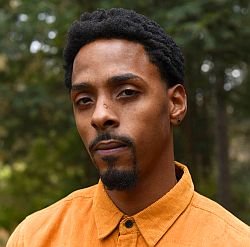
Evan Starling-Davis Ph.D. Student, Literacy Education. Humanities New York Public Humanities Graduate Fellow
Project: Hidden Fragments: XR technologies as a critical tool to nullify the phenomenon of spirit-murder
Navigating an ocean of forgotten keepsakes, identities, and histories residing within America’s Rust Belt, this interdisciplinary project both conceptualizes and explores extended reality (XR) technology at the intersection of Afrosurrealism and other Black Speculative Arts, as a pathway for Black healing, literacy motivation, art engagement, learning, and [his] developing “critical play theory.” Starling-Davis questions why the Arts—and the benefits of art-influenced literacy—are still widely inaccessible to Black and Brown communities in Syracuse. Honoring the art-activism devised from the (re)emergence of the ‘Freedom School’ via The Community Folk Art Center, Starling-Davis embarks on a quest to incite liberatory and alternative learning processes of Black communities, their histories, and their literacies, by developing storyworlds devised from fantastical subconsciousness and artifacts of the Afro-diaspora. This Afrosurrealist voyage—through digital and analog curations—aims to create narrative bridges between arts centers, city school district youth, and the local community.
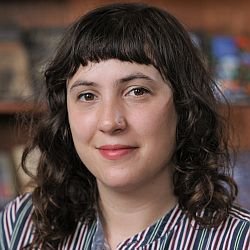
Myriam Lacroix M.F.A. Student in Creative Writing. Humanities New York Public Humanities Graduate Fellow
Project: Out-Front: A Writing Group for LGBTQ Youth in the Syracuse Area
Lacroix coordinates a Syracuse-based writing group for queer youth that aims to foster community through collaboration, experimentation, and self-publishing. In addition to this pursuit, Lacroix serves as editor in chief of Salt Hill Journal. Her work has appeared in Blue Mesa Review, Litro, and Vancouver Magazine. She was a finalist in the Gigantic Sequins Flash Fiction Contest, and was nominated for a Best of the Net Award.
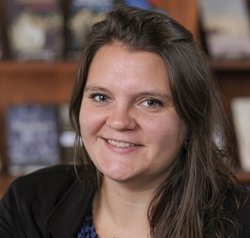
Alanna Louise Warner-Smith Ph.D. Student in Anthropology. Humanities New York Public Humanities Graduate Fellow
Project: Mapping Life Histories of the Huntington Irish: A Multi-Media Digital Exhibit
Employing interactive mapping software, Warner-Smith maps the life histories of Irish immigrants who lived in nineteenth-century New York City. These maps will be available as a digital public exhibit that presents archival images, footage, and data from archival documents. Historic maps may also be included to further elaborate on the sensorial urban landscapes they experienced. Integrating diverse media allows the viewer/user to envision the lived experiences of New Yorkers in the past, particularly immigrants making new homes and communities in New York City.
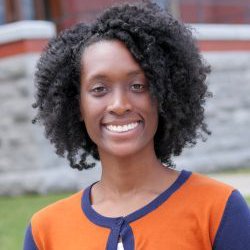
Camilla J. Bell Ph.D. Candidate in Cultural Foundations of Education.
Project Title: Freedom School: Education for Liberation
Project Abstract: Audre Lorde once proclaimed, “The learning process is something you can incite, literally incite, like a riot.” In fact, my project aims to do just that—incite liberatory learning processes for youth of color. In partnership with the Community Folk Art Center, a unit of the Department of African American Studies, College of Arts & Sciences at Syracuse University, Dr. Kal Alston and Dr. Mario Rios Perez, I plan to develop a two-week long Freedom School during the summer of 2019. During the Civil Rights Movement, the mission of Freedom Schools was to facilitate the politicization and critical consciousness of young people navigating unjust and inequitable living and learning conditions. Establishing a Freedom School geared towards youth of color within the Syracuse City School District will work to disrupt the unjust and inequitable living and learning conditions historically marginalized youth are still subjected to. This two-week long Freedom School will include workshops and field trips focused on writing, the arts, sociocultural exhibits, and ongoing engagement across difference. The objective is to carve out a space for youth of color to sharpen their critical literacies as well as obtain the tools needed to serve as agents of change within their own communities. Freedom School: Education for Liberation will ignite what is often snuffed out across classroom spaces—passion for living and a love for learning.
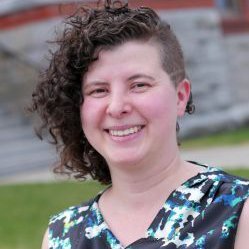
Gemma Cooper-Novack Ph.D. Student in Literacy Education.
Project Title: Collective Writing with Refugee and Immigrant Youth
Project Abstract: In this public scholarship project, I propose to create, coordinate, and teach a year-long out-of-school-time (OST) program in which a self-selected group of teenagers participating in activities at a community learning center for refugees collaborate to conceive, create, edit, and publish a collectively-written novel. Based on the work of Rodesiler & Kelley (2017), in the context of the critical race composite counterstory work of Solorzáno & Yosso (2002) and Martinez (2014), this project both reframes the notion of narrative as individually created, generated, and focused and strengthens the voices, writing skills, and storytelling and advocacy skills of ENL refugee students in Syracuse. Through this work, we will develop deeper connections with the youth literary community in Syracuse, culminating in a Youth Book Festival for programs in the city in 2019.
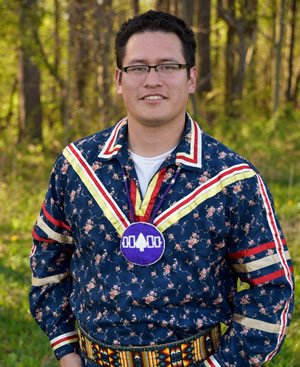
Hugh Burnam PhD candidate, Cultural Foundations of Education.
Project Title: The Haudenosaunee Thought Project
Project Abstract: Syracuse University and the Skä·noñh—Great Law of Peace Center sit on top of traditional Onondaga Nation land in Central New York. Both institutions are committed to education, diversity, and inclusivity in public and private spheres. They understand and acknowledge the Onondaga Nation as first peoples to Central New York since time immemorial and are committed to working in collaboration with the Onondaga Nation. However, institutional, structural, and cultural barriers challenge and impede meaningful collaboration between these three entities. Burnam's project brings these communities together to create significant meaningful and impactful relationships between these three entities, to give voice to Indigenous peoples’, to create spaces of conversations across differences, and provoke transformational dialogue for all communities engaged in this public education.
Hugh Burnam (Mohawk Nation, wolf clan) is a Ph.D. candidate in Cultural Foundations of Education at Syracuse University (M.A., Adult Education, Buffalo State College, 2011; B.S., Individualized Ethnic and Minority Studies, 2010). His research interests include social justice in education, community engagement efforts, language revitalization, environmental advocacy, and Indigenous genders. Hugh’s dissertation explores Indigenous student experiences in higher education, nation-building, and Indigenous masculinities. As a Public Humanities Fellow, Hugh proposes a project called The Haudenosaunee Thought Project, which will generate critical intergroup and intragroup conversations about Indigenous identities within Haudenosaunee and neighboring communities.
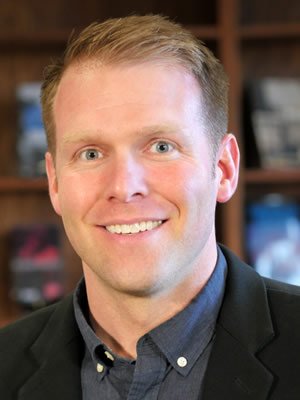
Matthew Stewart PhD candidate, History.
Project Title: Syracuse Places
Project Abstract: Stewart's work gathers local leaders to prepare experiential presentations that promise explorations of the places that they love with the people of Syracuse. These leaders will guide groups on walking tours and discussions in places shaped by four themes: what the place has meant to others in the past, what it means to people in the present, how the place might be best shared with the whole city, and then how the place might be protected ecologically for the enjoyment of future inhabitants. Using place as a starting point can bring fresh insight and imagination into not only the ecological issues that affect us all but also into new understandings of citizenship and community. Reflection on place also offers opportunities for imagining ways to bridge the social divisions—race and class, among others—that have plagued Syracuse in the past and continue to do so today.
Matt Stewart is a Ph.D. Candidate in the History Department and Graduate Intern for the Grants Development Office in the Maxwell School at Syracuse University. His dissertation uses the career of the writer Wallace Stegner to examine the intellectual history of the American West in the latter half of the twentieth century. He is active in the public humanities. He has served as a judge for the Central New York History Day and New York History Day competitions for several years, and has also been a scholar-facilitator for a Humanities New York Reading and Discussion Group in Marcellus, New York. He also serves as scholar-facilitator for the Idaho Humanities Council’s Summer Teacher Institute (Summer 2017), “Wallace Stegner and the Consciousness of Place.”
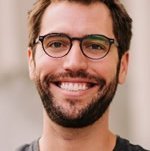
Jesse Quinn Ph.D. candidate in Geography, specializing in political geography and political ecology.
Public humanities project title: Precious Earth: Stories of Mining and Political Change in the Adirondack Mountains
Project abstract: Quinn's research investigates large industrial mining projects the adirondacks. He spent five years producing wildlife documentaries for National Geographic Television before returning to graduate school, and he plans to continue using these skills in this public humanities documentary
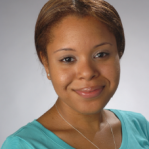
Kishauna E. Soljour Ph.D. candidate in History, specializing in the modern African Diaspora and transnational history.
Public humanities project title: The Road to Independence: Somali-Bantu Refugee immigration to Syracuse
Project abstract: Soljour's research interests include the use of multi-media in social justice efforts, public policy, immigration, racial identity, gender and citizenship. Her public humanities project will develop 3 short films exploring refugee experiences in the local area.
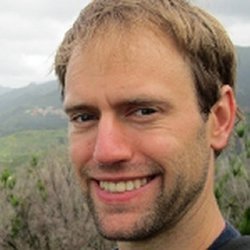
Paul Arras Ph.D. Candidate.
Paul Arras is a Ph.D. candidate in American cultural history at Syracuse University. He researches community fragmentation in late 20thcentury America – the decline of civic participation, the culture wars, and other problems and barriers impeding social interaction. His dissertation, The Lonely Nineties: Visions of Community on Television from the End of the Cold War to 9/11, examines how television grappled with fragmentation, reimagining traditional community structures and values to produce new visions of social interaction. During the Fellowship, Paul will be working with the Near Westside Initiative in Syracuse to develop a public history project for the neighborhood.
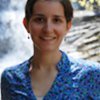
Scarlett Rebman Ph.D. student.
Scarlett Rebman is a Ph.D. student in the history department at Syracuse University where she is specializing in modern American social and political history. She received her bachelor’s degree in history and education from Ohio Wesleyan University. Her research interests include the history of social movements; federal anti-poverty and civil rights policies; and the construction of race, gender, and citizenship. Her dissertation explores the intersection of grassroots activism and federal policies in Syracuse, New York between 1935 and 1970. With the Public Humanities Fellowship, she plans to design a curriculum on Syracuse civil rights history for high school students.
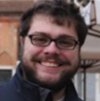
Thomas Guiler Ph.D. Candidate, Maxwell.
Thomas A. Guiler is a Ph.D. candidate in American social and cultural history in the Maxwell School of Citizenship and Public Affairs. In particular, he studies intentional communities and communal groups, with special emphasis on the intersections among their ideals, economic production and culture. His dissertation will examine communities in the Arts and Crafts movement—Byrdcliffe, Roycroft, Craftsman Farms and Rose Valley—as unique transitional communities that marketed community, the simple life, handcraftsmanship, art and architecture as powerful forms of “progressive purchasing” to transform the harsh inequalities of modern industrial capitalism. Guiler plans to install a renewed public history program at Byrdcliffe in Woodstock, N.Y.
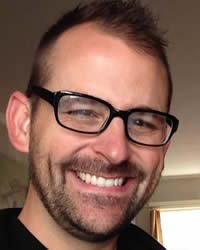
Jason Luther Ph.D. Candidate, Cultural Composition and Rhetoric.
Jason Luther is completing a dissertation in cultural composition and rhetoric in the College of Arts and Sciences. As a former writing center director and longtime self-publisher, Luther is interested in what multimodal, self-sponsored composing spaces can teach about identities, counter/publics, processes and pedagogies. He's currently working toward a dissertation that surveys the process and performances of 21st-century zine authors. Luther blogs at http://taxomania.org. With the Public Humanities Fellowship, he will work toward the creation of a city-wide self-publishing festival in Syracuse.
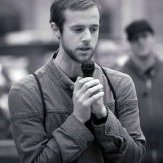
Benjamin Kuebrich Ph.D. Candidate, Composition and Culural Rhetoric.
Kiebrich is interested in the ways that stories can clarify, illustrate, and help solve community problems and bring people together for collaborative action. For more than two years, he worked with community residents in Syracuse’s Westside and edited a book called I Witness: Perspective on Policing in the Near Westside that engages with issues of policing in the neighbourhood. Future plans include continuing to fostering a culture of writing in Westside Syracuse by facilitating memoir writing workshops with community residents.
